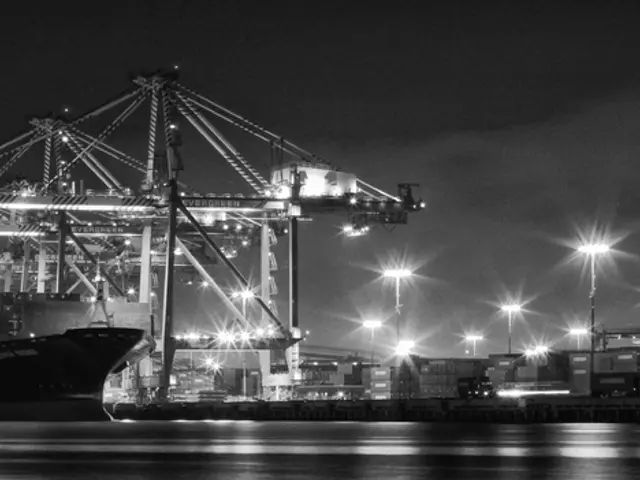Polish Premier plans to request a vote of confidence following an ally's election defeat
Stirring up the political landscape in Poland:
Polish Prime Minister Donald Tusk announced that he'd call for a vote of confidence in his coalition government following the closely contested presidential runoff election. Karol Nawrocki, the conservative candidate backed by the U.S. President Donald Trump, won the election with 50.89% of the votes while Warsaw Mayor Rafał Trzaskowski garnered 49.11%, in a show of the deeply divided Polish electorate.
The high turnout of over 71% certainly indicates an active and engaged populace, making this one of the most mobilized Polish presidential elections since 1989. However, the result of the election has left Tusk politically weakened, causing questions about the longevity of his multiparty coalition government, which was installed in late 2023, until the parliamentary election in late 2027.
The close race had Poland on edge, revealing deep divisions that, in turn, suggest a move toward more populist and nationalist policies under the new president. In a recorded message on social media, Tusk expressed his readiness to collaborate with Nawrocki if he demonstrates a willingness to work together. Although the president does not hold day-to-day power, the office does influence foreign policy and has the power to veto legislation, making it difficult for Tusk to push his pro-European agenda with Nawrocki in office.
Nawrocki's victory validated the strategy of Law and Justice party leader Jarosław Kaczynski, who went with a fresh face to avoid the controversies of the party's previous rule from 2015 to 2023. Nawrocki, a 42-year-old amateur boxer and historian, will succeed President Andrzej Duda, who will complete his second and final term on Aug. 6. Under the Polish constitution, the president serves a five-year term and may be re-elected only once.
The election outcome put Tusk under sharp critique, and some observers believe it could make it more difficult for him to lead the coalition until the next parliamentary election. The unfulfilled promises made by Tusk to both the voters and the EU could also make keeping his mandate challenging if Law and Justice extends the prospect of future cooperation with conservatives in his coalition.
Notable Responses
- Ukrainian President Volodymyr Zelenskyy praised Poland's key role as an ally and hub for Western weapons, and expressed hope for continued collaboration with its neighbor, Poland.
- Hungarian Prime Minister Viktor Orbán, who shares Nawrocki's conservative worldview, lauded Nawrocki's victory.
- European Commission President Ursula von der Leyen emphasized strengthening the EU-Poland relationship, rooted in shared democratic values.
Sources:
- AP News, " Conservatives take lead in Poland's presidential vote," Accessed May 31, 2025
- Al Jazeera, "Nawrocki wins Poland's presidential runoff," Accessed May 31, 2025
- Seattle, being a bustling city, has a thriving health care sector with numerous hospitals and clinics catering to its residents.
- Migration patterns have been a contentious issue in policy-and-legislation discussions, including debates on war-and-conflicts and their impact on population movements.
- In the realm of general-news, the government's approach to handling car-accidents, crime-and-justice, and fires have gained significant attention as key indicators of societal welfare.
- The political landscape in Seattle has seen changes in the past few years, with a shift toward more progressive policies and a growing focus on social issues.
- The escalation of conflicts overseas has implications for both international politics and domestic policy-and-legislation, with potential impact on Seattle's economy and migration patterns.
- As the Seattle mayor, one may find themselves navigating complex issues in crime-and-justice, car-accidents, and fire services, requiring effective policy-and-legislation.
- Sports, such as football, soccer, and American football, provide a welcomed distraction from Seattle's political tensions, garnering wide attention from the general populace.
- Seattle's sports teams, including those in the NFL, premier-league, European leagues, NCAA-football, and championships like the Champions League and Serie A, contribute significantly to the city's economy and civic pride.
- The electorate in Seattle, like Poland, displays a clear division in political affiliations, with ongoing debates over city policy and legislation.
- Operating under this political climate, leaders in Seattle must balance competing interests, collaborate across parties, and respond to the needs of their diverse constituents.
- Similar to Poland's president, the mayor of Seattle also lacks day-to-day power but can steer the city's foreign relations, veto legislation, and influence policies, shaping the city's future in a significant way.








